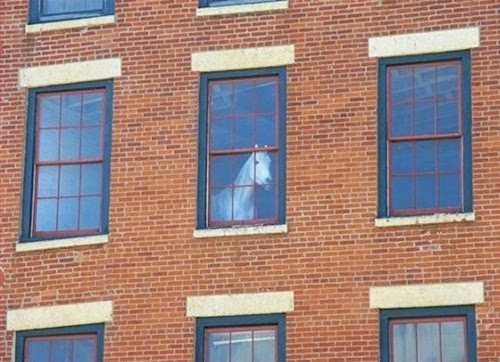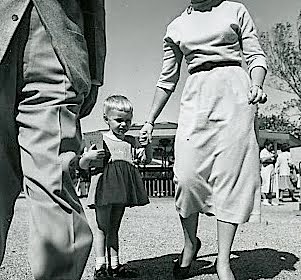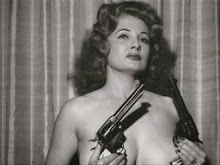
A New Age
So an age ended, and its last deliverer died
In bed, grown idle and unhappy; they were safe:
The sudden shadow of a giant's enormous calf
Would fall no more at dusk across their lawns outside.
They slept in peace: in marshes here and there no doubt
A sterile dragon lingered to a natural death,
But in a year the spoor had vanished from the heath:
A kobold's knocking in the mountain petered out.
Only the sculptors and the poets were half sad,
And the pert retinue from the magician's house
Grumbled and went elsewhere. The vanished powers were glad
To be invisible and free; without remorse
Struck down the sons who strayed in their course,
And ravished the daughters, and drove the fathers mad.
---W. H. Auden
From its very beginning, psychoanalysis has given a privileged place to literature. In developing some of the foundational concepts of psychoanalysis, Freud drew on literary examples and readings; the Oedipus complex, narcissism, and the Uncanny, for example, not only reference literature in their terminology but grew out of Freud’s creative and insightful re-reading and interpretation of literary works. This is partly because, as Freud once wrote to a friend, “the poets were there before me,” and partly because Freud conceptualized psychoanalysis itself as a deeply narrative process. This course focuses on the relationship between literature and psychoanalysis. Instead of “applying” psychoanalysis to literature, we will consider the ways in which literature and psychoanalysis are involved with each other, discussing Freudian and post-Freudian psychoanalytic theories of language, narrative and reading.
Psychoanalysis is a “talking cure:” language and narrative are fundamental to its project. In his work, Freud conceived of the psyche itself as a kind of writing machine, an “author” that produces fictional narratives which structure the subject’s sense of self and his or her relation to the world. In this sense, psychoanalytic therapy involves the re-narratization of a person's life. And, as an interpretive practice, psychoanalysis is grounded in a rhetoric of suspicion: the idea that motives and meanings are often disguised by and work through other means.
In this course we will limit our investigation of psychoanalysis to the foundational work of Sigmund Freud and the post-Freudian theories of Jacques Lacan since they provide the most useful and provocative ideas for a discussion of language and narrative. We will begin with a quick overview of basic ideas in the work of Freud and Lacan as well as some related theories of language, meaning and reading. The course is organized around three groups of related ideas and readings: The Uncanny, Screen Memory, and the Family Romance.
While psychoanalysis can be understood as a theory of narrative, it can also be conceptualized as a pedagogic practice: broadly understood, the project of psychoanalysis is to teach the patient see the world differently. The analyst then, like a teacher, is interested in enlarging upon and countering previous interpretations of the world: most importantly challenging those assumptions which seem so “obvious” and “natural” as to be beyond question.
The Marxist philosopher Antonio Gramsci called these kind of beliefs and ideas, the cultural common sense: those largely unconscious assumptions about the way things are that have come to seem natural or eternal, rather than the products of a particular time and place. And though our apprehension of the world may seem immediate, it is in fact mediated: we understand “reality” only through the various narratives (interpretations) of it to which we have access. One of the goals of this course is to make those prior interpretations visible to students, to enable them see the taken-for-granted assumptions that shape not only their understanding of literature, but also the world.
Papers and assignments
The format of the course consists of reading, writing, class discussion and lectures. Students will complete three graded papers and occasional ungraded reading logs. The graded papers will be formal, typed, critical analysis papers where students present the results of their reading and thinking. The logs, however, provide a different, less formal space for students to work through the implications of their reading and class discussion.
The logs are a space where students can begin to critically reflect on their practices as readers, as students, and as human subjects. They provide a place to work through discussion and reading, and thus deepen your understanding of class work without having to worry about a polished format or a grade. Throughout the semester, I will occasionally assign a reading log based on the works we’ve been reading and discussing in class. I will give you a topic to write a short response on and the parameters of each log (length, due date) will be decided at that time.
Grades
The ability to simply reproduce “main ideas” is not the end goal of this class. Instead, the focus is on learning how to make use of ideas and concepts. That's why there are no conventional tests or quizzes in this class. That's also why regular participation in class discussion is a course requirement. Regular attendance is necessary to produce the classroom as a genuine public space marked by the active participation of all its members—not just the teacher.
The final grade is based on class participation, (15% of grade), in-class assignments and reading logs (35% of grade), and the three papers (50% of grade). More than 3 unexcused absences will result in failing the course. All assignments must be turned in to pass the course.
Email and Blog
At the top of this blog you will find my email. Use it to contact me outside of class, but do NOT email your papers or assignments unless you have made prior arrangements. The class blog should be thought of as one of the texts of the course and so reading it is a course requirement. You can also ask me questions directly on the blog by posting comments under specific blog posts. I will be posting further information or links to things of interest to the course, so check back regularly.
______________________________________________
Academic and Classroom Policies
It is the official policy of the college that more than 3 unexcused absences results in an F for the course.
Plagiarism is a serious academic infraction. Turning in plagiarized work results not only in failing the course, but also in possible academic suspension.
Turn off all cell phones upon entering the classroom. The first time one rings, the student will be given a warning. The second time, the student will be dropped from the class.
_____________________________________________
Texts:
(all material on the class blog should be considered one of the primary texts of the course)
"On Intelligibility" (posted on the blog)
"On Dreams" -- Sigmund Freud
"The Unconscious" -- Sigmund Freud
The Uncanny -- Sigmund Freud (purchase)
"Screen Memories" (in the Uncanny)
"Family Romances" (in the Uncanny)
"The Uncanny" (in the Uncanny)
"The Sandman," E. T. A. Hoffman
The Turn of the Screw -- Henry James (purchase)
"Accursed Inhabitants of the House of Bly," from Haunted: Tales of the Grotesque, Joyce Carol Oates
H -- Elizabeth Shepard (purchase)
Fun Home -- Alison Bechdel (purchase)
_____________________________________________
Course Calendar (always check the blog for updates to the calendar)
September
M 7 No Class Labor Day
T 8 (Class meets on a Monday schedule) Introduction and course overview
W 9 Introduction to Freud: background, basic concepts, theory of interpretation and the “split subject.”
M 14 No Class
W 16 Read and discuss "On Dreams." Freud as narrative theorist/reader
M 21 continue discussion, read and discuss "The Unconscious"
W 23 No Class
M 28 ----The Uncanny-----Read and discuss “The Uncanny,” and “The Sandman”
W 30 continue discussion
October
M 5 Continue discussion of "The Uncanny" and "The Sandman"
W 7 Continue discussion
M 12 Read and discuss The Turn of the Screw
W 14 continue discussion
M 19 continue discussion
W 21 continue discussion
M 26 continue discussion, "Accursed Inhabitants of the House of Bly"
W 28 continue discussion
November
M 2 -----Screen Memory----Read and discuss “Screen Memories,” and H. First Paper Due
W 4 continue discussion
M 9 continue discussion
T 10 (day classes meet on a Wednesday schedule) continue discussion
W 11 No Class
M 16 continue discussion
W 18 continue discussion
M 23 ----The Family Romance---- Read and discuss Fun Home, “Family Romances”
W 25 continue discussion Second Paper Due
M 30 continue discussion
December
W 2 continue discussion
M 7 continue discussion
W 9 continue discussion
M 14 continue discussion
W 16 continue discussion
M 21 Last day of class -- Final Paper Due
T 22 Semester Ends


























































No comments:
Post a Comment